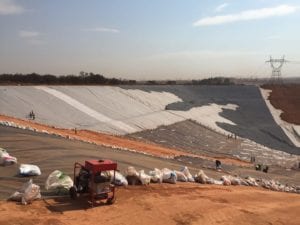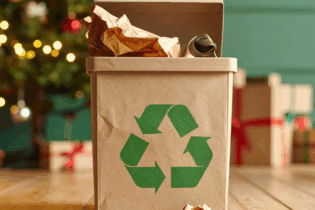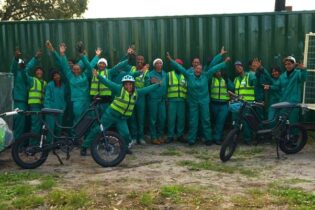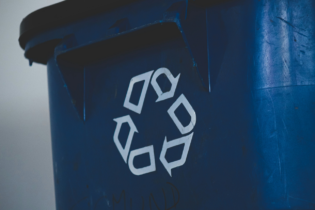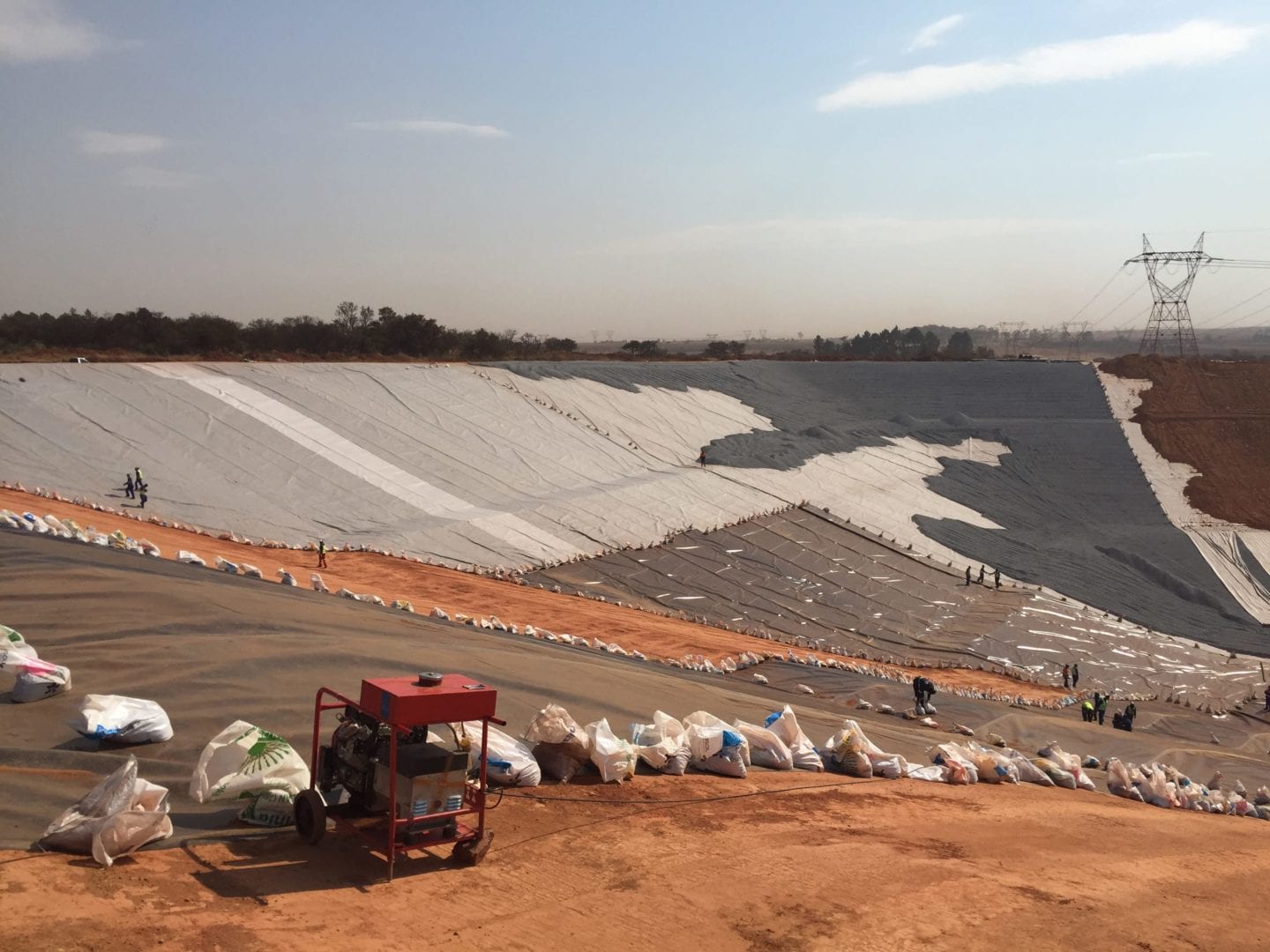
Fibertex F1200 geotextiles used as a protection layer on a recently constructed hazardous landfill site. Picture: Supplied
The company’s manufacturing plant in Hammarsdale, KwaZulu-Natal, was recently awarded the CE marking – a mandatory certification for products sold within the European Economic Area.
This certification endorsed Fibertex SA’s compliance with other quality assurance standards, including the ISO 9001: 2008 accreditation and a range of industry specific quality requirements.
Virgin Polypropylene geotextiles
The company’s Hammarsdale facility is the largest plant in South Africa that manufactures geotextiles from Virgin Polypropylene (PP). These needle punched materials have a strong elastic bonding between the fibres. They are used in building and construction works for separation, filtration, drainage, protection, stabilisation and reinforcement, as well as in the automotive, furniture and filtration markets.
Virgin PP has specific application in areas where the textile may be in contact with alkaline conditions, for example in slimes, dams and waste sites. These PP geotextiles also have advantages in installations where the cost of failure may be extreme, both in financial and environmental terms, as they have a high level of chemical stability under a wide range of environmental conditions.
“Given that these products are produced out of virgin material, there is full traceability on the raw materials over their entire lifespan, eliminating unknown factors such as age and potential contaminants, thereby ensuring that the materials are absolutely consistent in terms of performance in these critical applications,” Fibertex SA said.
Environmental concerns considered
Fibertex said that no chemical binders are used in the product or production process. “In addition to the wide range of products made from virgin PP, Fibertex also has a range of products based on recycled Polyester (RPET),” the company said. It explained that no waste was produced within the plant which had to be discarded, and that all products produced were 100% recyclable. “Consequently, Fibertex nonwovens are not harmful to the environment,” the company said.
The company specialises in “geosynthetic construction materials used in the waste management sector, with a particular focus on the construction of waste landfill facilities and other applications associated with waste management,” Darryn Meisel, national sales manager at Fibertex SA said.
Some of the products the company produces include woven and non-woven geotextiles, geogrids, subsoil drainage pipe and fittings, geocells and various composite drainage systems, as well as gabions and mattresses.
Fibertex also has a range of erosion control systems, geomembranes and geosynthetic clay liners (GCLs) which it showcased at the Wastecon 2016 Conference in October this year.



